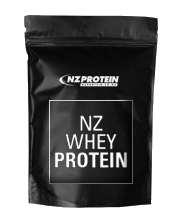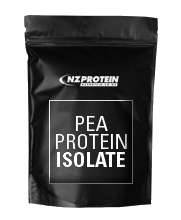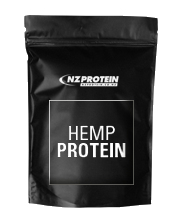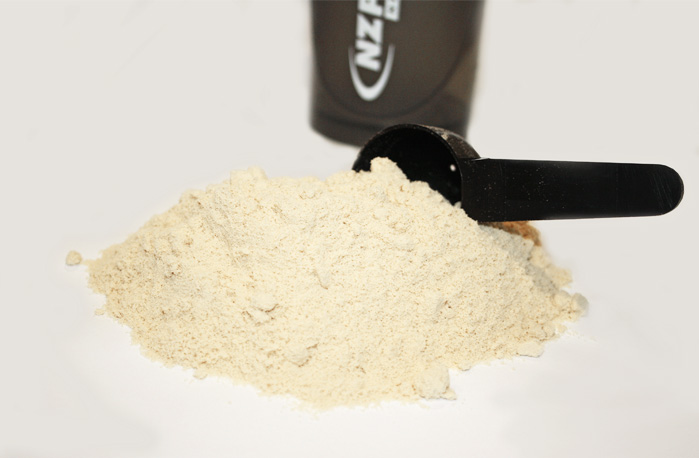
Which Protein is Best?
To ascertain which protein source is the best, first we must understand the role of protein and amino acids with exercise.
Do I Need More Protein?
For those undergoing strenuous physical training between 1.5 and 2 grams of protein per kilogram of body weight is recommended to build muscle mass. Of course protein dietary needs vary depending on a range of factors including intensity of training, age, sex, goals, and so on.
Although these needs can be met by eating lean meats, eggs, fish, beans, and so forth - the addition of protein powders is a convenient way to supplement protein into the diet. Shakes are relatively inexpensive, quick, and easy. Shakes can be easier to digest and absorb than heavier foods, especially for those with sensitive stomachs. And most of the time they're delicious too!
Most athletes use animal based proteins such as whey because these types have been available for the longest and are more common-place in the market, but times are changing as people develop new cutting edge ways to extract proteins from various sources including plants.
Plant proteins offer many advantages - they're generally eco-friendly, anti-inflammatory, and slower digesting. But one must be wary as not every plant protein has a complete amino acid profile.
Best protein for muscle repair and development
The best protein to build muscle is one that has a complete amino acid profile that's high in branched chain amino acids.
Protein exists in both plants and animals. When digested it's broken down into amino acids, which are commonly referred to as the 'building blocks of life'. Protein occurs in all living cells and has both functional and structural properties. It's an essential part of the diet as it helps the body to repair cells and make new ones.
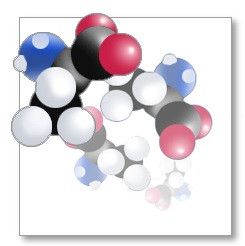
Best Protein Digestion
The Protein Digestibility-Corrected Amino Acid Score (PDCAAS) is a rating that determines the bioavailibility of a protein. The better a protein is digested, the more efficiently it can be used by the body. The digestibility of any given protein is related to the concentrations of its amino acids. The maximum score is 1.0.
See how the proteins rate for PDCAAS below.
Hemp Protein Benefits
What is Hemp Protein?
Hemp protein powder is a plant protein that's made by milling pressed hemp seeds into a fine powder. Our product has a protein level of around 60% with the rest comprising of healthy nutrients including essential omega essential omega fatty acids, dietary fibre, minerals, antioxidants and phyto-nutrients.
It's organic, vegan, alkaline, and naturally free of gluten, dairy, soy, and other allergens*. It has a pleasant earthy nutty taste, and makes a great smoothie base. It also works well in recipes such as muffins, balls, cookies, bars and desserts, or any other application that boosts protein intake.
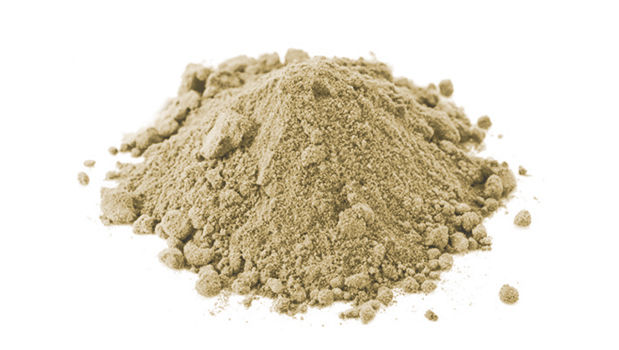
Will it help me to repair and develop muscle?
One serving of our hemp contains 133 calories and ~20.2 grams of protein.
Hemp seeds contain all 21 amino acids required to support essential metabolic function, making it a good source of protein to assist muscle repair and development. It contains all nine essential amino acids and branched chain amino acids that the body cannot produce and must be supplied from the foods we consume.
However, Leucine levels are lower in hemp protein than other sources. Leucine is one of three branched chain amino acids and is primarily involved in muscle protein synthesis for muscle growth and recovery. Therefore, we do not recommend it as the sole source of protein if your goal is maximum muscle gain. Adding a BCAA supplement could help to overcome this.
This Australia New Zealand Food Standards report gives hemp seeds a PDAAS score of 0.9. This is greater than or equal to some grains, nuts and legumes.
Other Benefits
Hemp protein contains essential fatty acids which are vital for heart health and in creating a healthy immune system and reducing inflammation in the body. Inflammation is a leading cause of illness and chronic disease such as arthritis and cancer.
Hemp protein is also an easy way to add fibre to your diet. It contains 2.4g of dietary fibre per serve, or 7.8g per 100g. Fibre is the part of the food that cannot be digested by the body. It is important in the maintenance of a healthy balanced diet as it helps to keep our bowels functioning and healthy.
Is it Legal?
Yes. The actual hemp seeds do not contain THC. Hemp protein powder is made from hemp seeds. It is the other parts of the hemp plant (leaves/flowers) that contain THC.
Though technically the leaves/flowers could contaminate seeds if not processed correctly, hemp plants contain such low levels of THC (<0.3%) that even if so, according to this study, the THC levels are not even significant enough to fail a drug test.
According to Jolene Formene, staff attorney at Drug Policy Alliance, “Hemp seeds are non-psychoactive, meaning that consumers cannot get high by eating them".
There is more information here on the hemp product page.
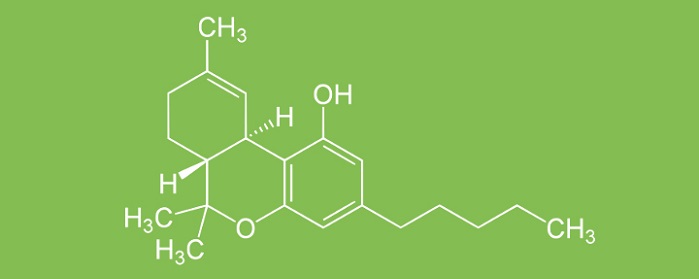
Pea Protein Benefits
What is Pea Protein?
Not every plant protein has a complete amino acid profile, but our pea isolate is another plant protein that does have a complete profile. In fact, it has an excellent amino acid profile.
Pea protein isolate is made from premium-quality natural golden peas grown in Canada which have been dried and ground, then mixed with water to remove the fibre and starch components.
It's then ground and dried again to produce a product which is very high in protein, low in fat, easily digestible, and non-acidic. Low heat isolation is used to maximise bioavailability.
Pea protein is vegan and GMO free. It's also naturally free of dairy, gluten, soy, and other allergens*.
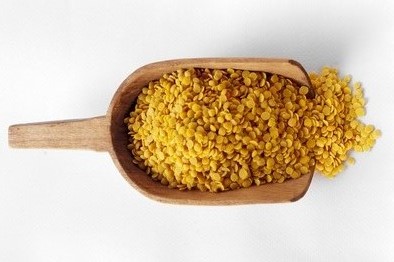
Will it help me to repair and develop muscle?
One serving of our pea contains 111 calories and ~25 grams of protein.
It contain all 21 amino acids required to support essential metabolic function, making it a good source of protein to assist muscle repair and development. It contains all nine essential amino acids and branched chain amino acids that the body cannot produce and must be supplied from the foods we consume.
Pea is high in L-leucine, containing about 7 grams per 100 grams. Leucine is one of three branched chain amino acids and is primarily involved in muscle protein synthesis for muscle growth and recovery. It also contributes to the regulation of blood-sugar levels, growth hormone production and would healing.
This study gives pea a PDAAS score of 0.64. This is greater than lentils and green peas but equal or slightly less than some beans.
Other Benefits
Pea contains minerals including iron, phosphorus, calcium, zinc, potassium and magnesium that can benefit your health.
It may help to lower blood pressure and with kidney disease. "In people with high blood pressure [it] could potentially delay or prevent the onset of kidney damage." Source.
Pea may also help to improve glycemic control and balance blood sugar levels when paired with other foods.
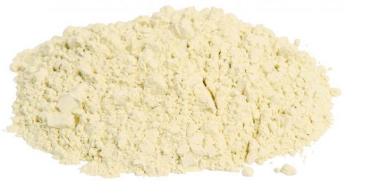
Whey Protein Benefits
What is Whey Protein?
Whey is a high quality protein powder that comes from milk and is a by-product of the cheese making process. It has a naturally creamy texture and is the best tasting protein.
Our whey is from New Zealand. The dairy cows that produce the milk used to create NZ whey are naturally grass fed and not factory farmed. New Zealand is a world leader in dairy and NZ is the largest dairy exporter in the entire world.
NZ has strict standards to protect the integrity of its dairy industry and has rigorous testing and quality standards for milk production. Milk is carefully managed against antibiotics and hormones and is therefore renowed for being 'clean'.
Whey is available in concentrate (WPC) and isolate (WPI) forms. The WPC is lower cost and has a creamier texture. It is more popular so we stock it in more flavours and sizes than WPI.
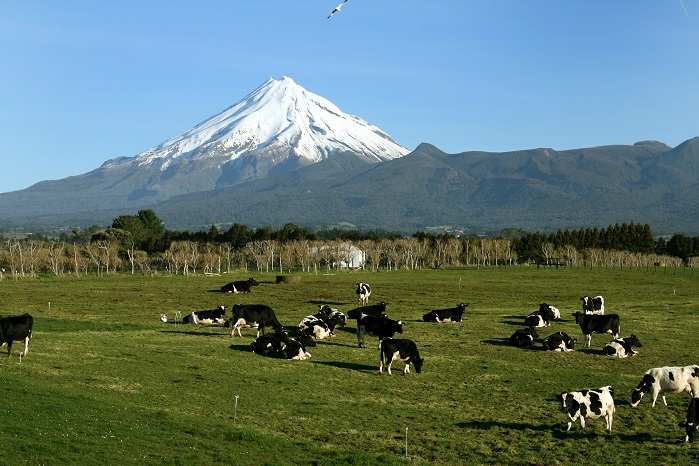
Will it help me to repair and develop muscle?
One serving of our whey contains 130 calories and ~25 grams of protein.
Whey is the best source of amino acids and Branched Chain Amino Acids (BCAAs). It's fast digesting and easily absorbed by the gut.
Whey is highly nutritious and, coupled with its concentrated amino acid profile, is one of the most beneficial dietary sources of protein for muscle growth and repair - especially for pre and post exercise. Whey is very high in leucine with ~9g per 100g, so both are great for muscle development.
The maximum PDCAAS score is 1.0 as traditionally protein quality was measured against milk, which scored 1.0. Whey actually exceeds the scale and scores 1.21, which is the highest of all protein sources.
Other Benefits
Cows that consume a grass fed diet produce milk with nearly twice as much omega-3 than their counterpart, with a ratio of omega-3 vs omega-6 around 1:1. Diets high in omega-3 are believed to support heart and immune system health. Grass fed cows have milk that's also richer in vitamin E and beta-carotene.
Whey is composed of several bioactive fractions including glycomacropeptide, β-lactoglobulin, α-lactalbumin and lactoferrin. These have health benefits against cancer, infection and inflammation.
Antioxidant defence - whey contains concentrated amounts of cysteine. Cysteine is a key amino acid in the production of glutathione - a natural defensive antioxidant. Studies have shown a relationship between whey and increased glutathione levels.
Reduction in blood pressure -various studies have found relationships between reduction in blood pressure and the consumption of dairy products.
Our Verdict
|
|
|
|
|
Protein Per 100g |
~80% |
~80% |
~60% |
Source |
Grass fed milk |
Yellow peas |
Ground hemp seeds |
PDCAAS Score |
>1.0 (exceeds scale) |
0.82 |
0.61 |
Key Attributes |
Fast digesting. Best amino acid profile. Best mixing/tasting. |
Vegan friendly. Best plant based amino acid profile. |
Plant based. Contains essential fatty acids, fibre, and more antioxidants and nutrients. |
Best For |
Best protein for pre/post exercise protein shakes. |
Best replacement for whey if avoiding milk. Great for baking and recipes as it doesn't dry out like whey can. |
Best protein for smoothies (for both vegans and non-vegans) |
All of these protein powders have their own advantages and overall, whether vegan or not, we conclude that it is best to consume protein from a variety of sources as this will ensure that your body gets all the essential (and non-essential) amino acids and other key nutrients it requires on a daily basis. Overall it's best to choose a protein powder that suits your goals, dietary preferences, and any food tolerances.

